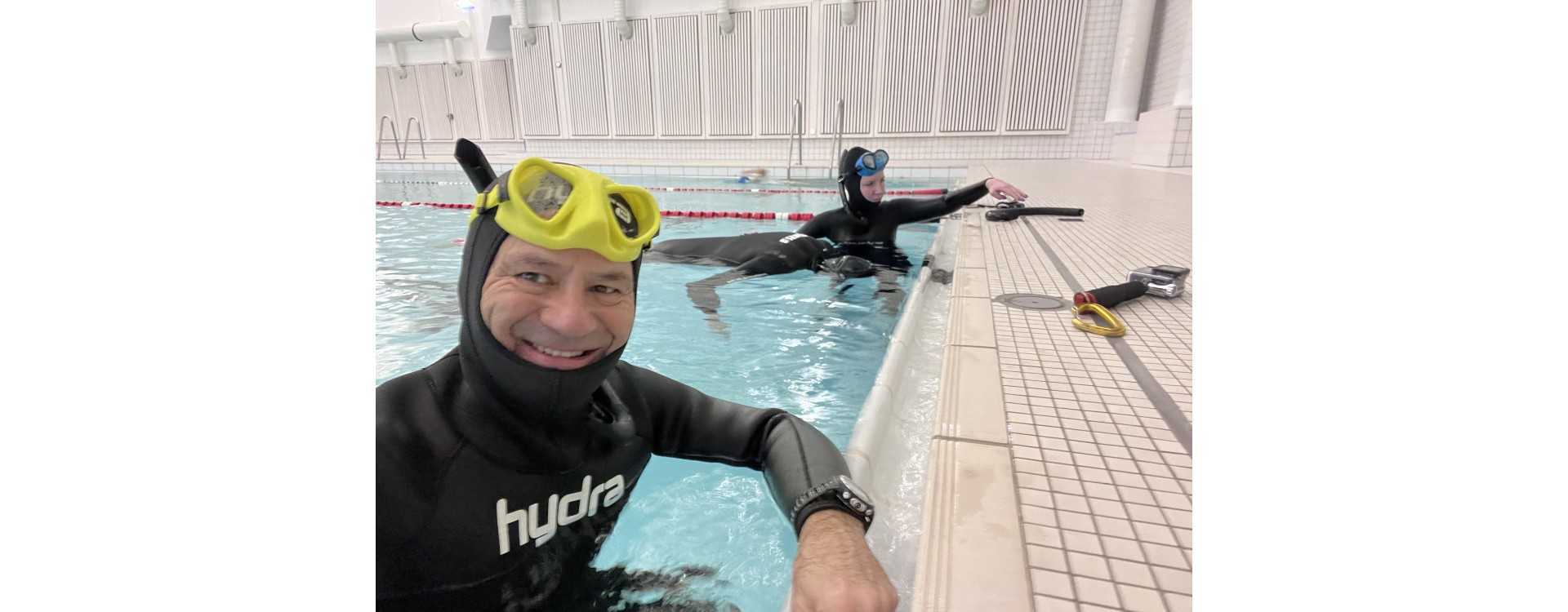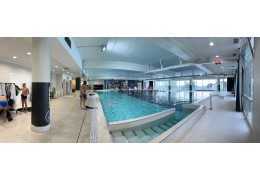Indoor pool training on Friday 15 December 2023 was a highlight.
Benefits of training for freedivers in the Y-40, the deepest pool in the world with thermal water

It is a pleasure to introduce people to the fascinating underwater world of freediving. As an instructor, I have the privilege of introducing students of all ages (12+) and backgrounds to freediving. From beginners who have never worn a mask or snorkel before, to experienced SCUBA instructors who have taken their first steps in apnoea diving with me.
I have trained teenagers who have already dived to depths of up to 12 metres on the anchor rope of their parents' yacht. Their worried parents contacted me to organise a family course for them.
I have had the opportunity to introduce SCUBA diving clubs to the basics of freediving and in doing so have awakened an enthusiasm for freediving in some of them.
I have accompanied people on their way to overcoming their fear of deep water through a freediving course. I have supported people to become freedivers, even though their environment did not trust them to go swimming.
I have trained experienced freedivers, optimised their technique in the pool and open water and given them the keys to achieving longer times, greater distances and depths.
My training principle is based on 4 pillars:
- Explaining; I don't just tell a student what he or she should do, but always explain the "why" as well. For example: my students know that the pre-pressure equalisation of the middle ear during a duck dive is necessary because we bring the head to a depth of 3-4m with the strong arm pull and we cannot equalise the pressure during this time.
- Analysing; through observation, I analyse what the diver is doing well according to the level and where there is a need for action. I also encourage my students to observe each other and give feedback. This teaches them to focus on certain aspects of the technique (e.g. does the chest/belly move when equalising pressure or not).
- Prioritise; a student on a Basic Freediver course doesn't need to be able to do a turn in the pool as smoothly as a competitive athlete. So I focus on the head position and fin stroke, which is more valuable to the student at this level and has an immediate positive impact on his or her performance.
- Feedback; I praise my students for what they have done well. Then I give them one thing to change for the next attempt. Then I let them practise: Once one change is consolidated, we focus on the next thing and so on.
In this blog, I would like to report on these people and their path to freediving. Of course, always with the consent of the people pictured.

Benefits of training for freedivers in the Y-40, the deepest pool in the world with thermal water